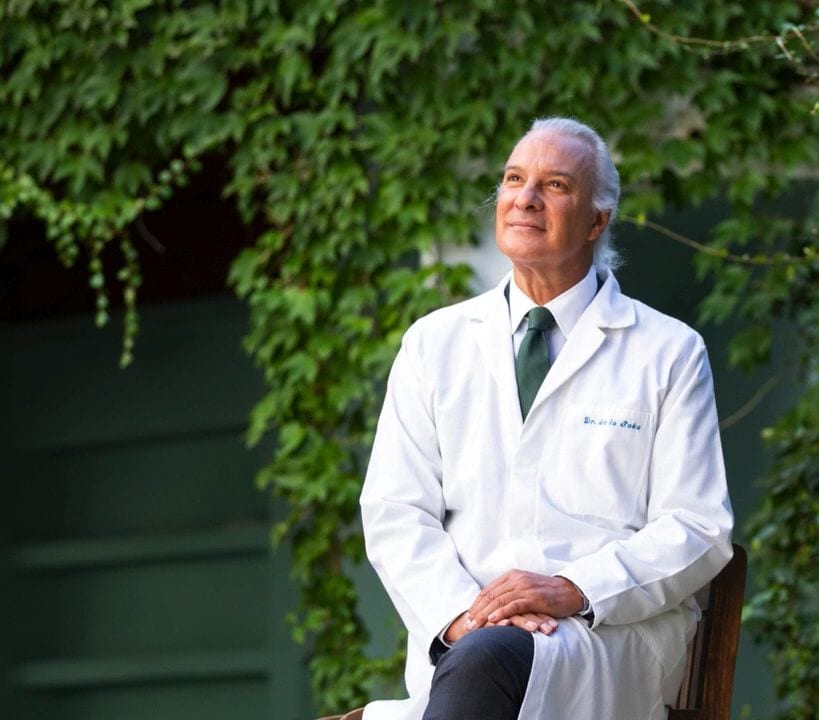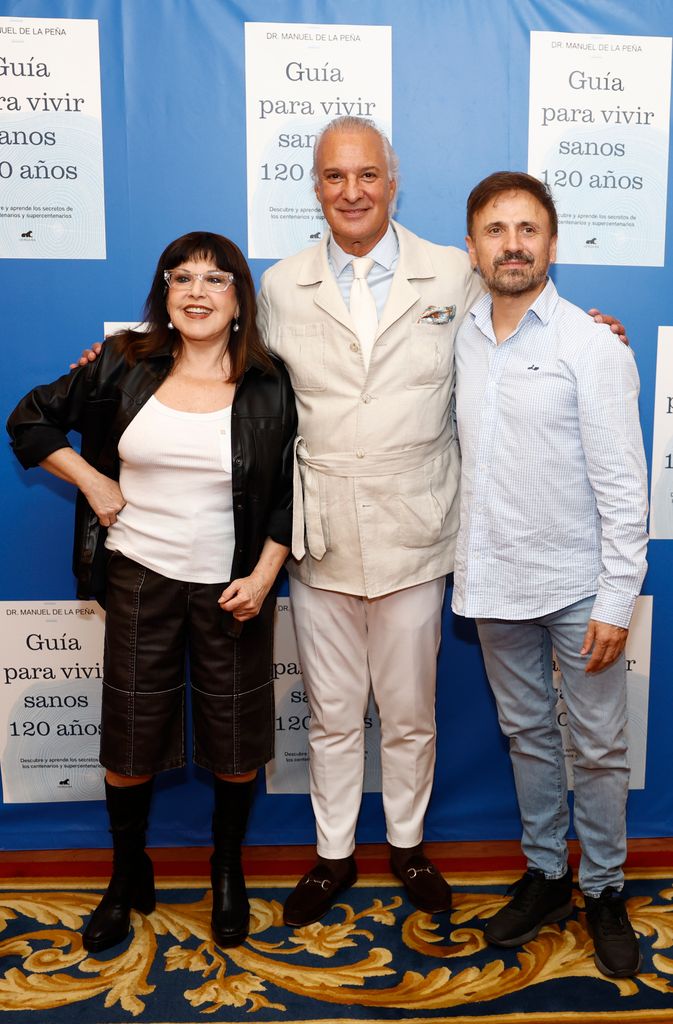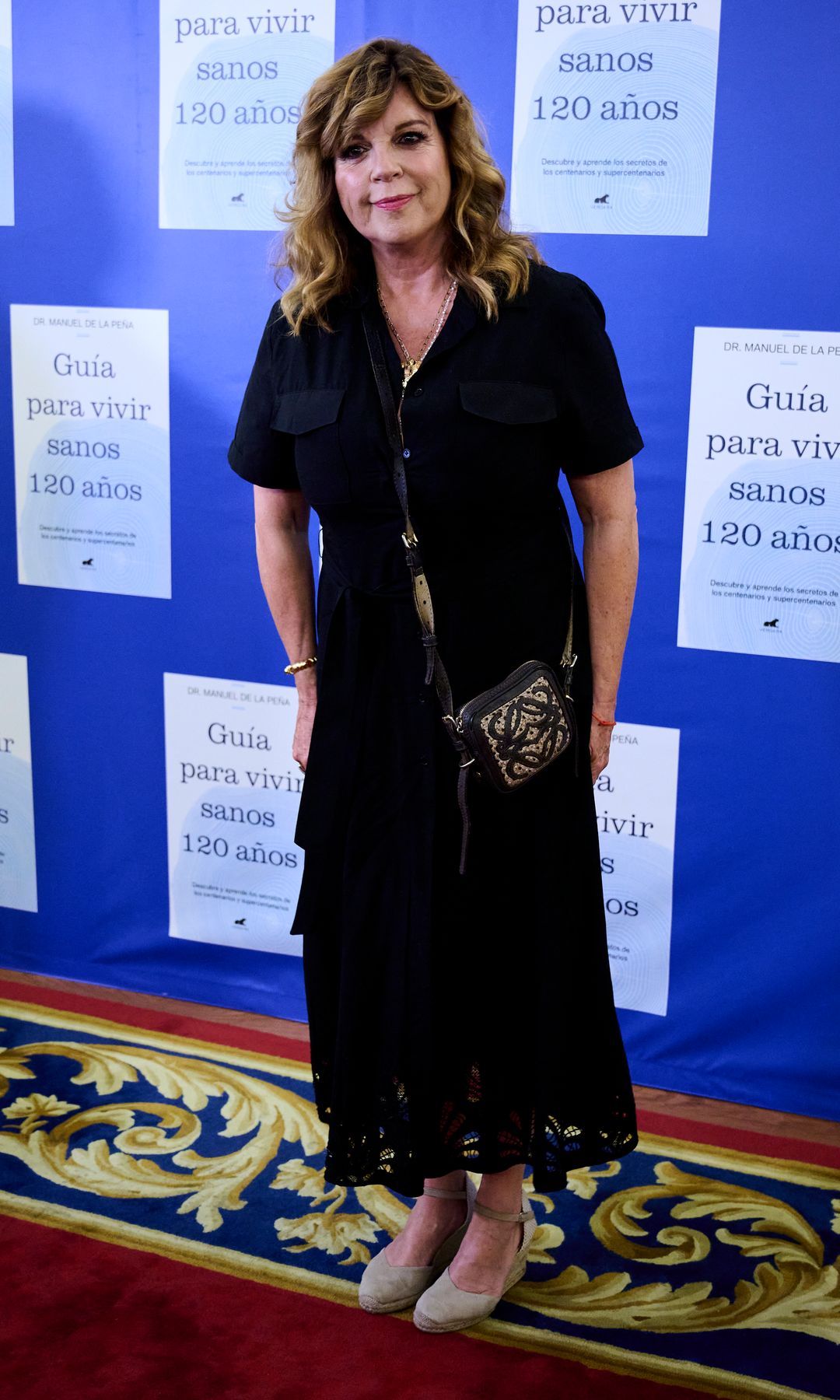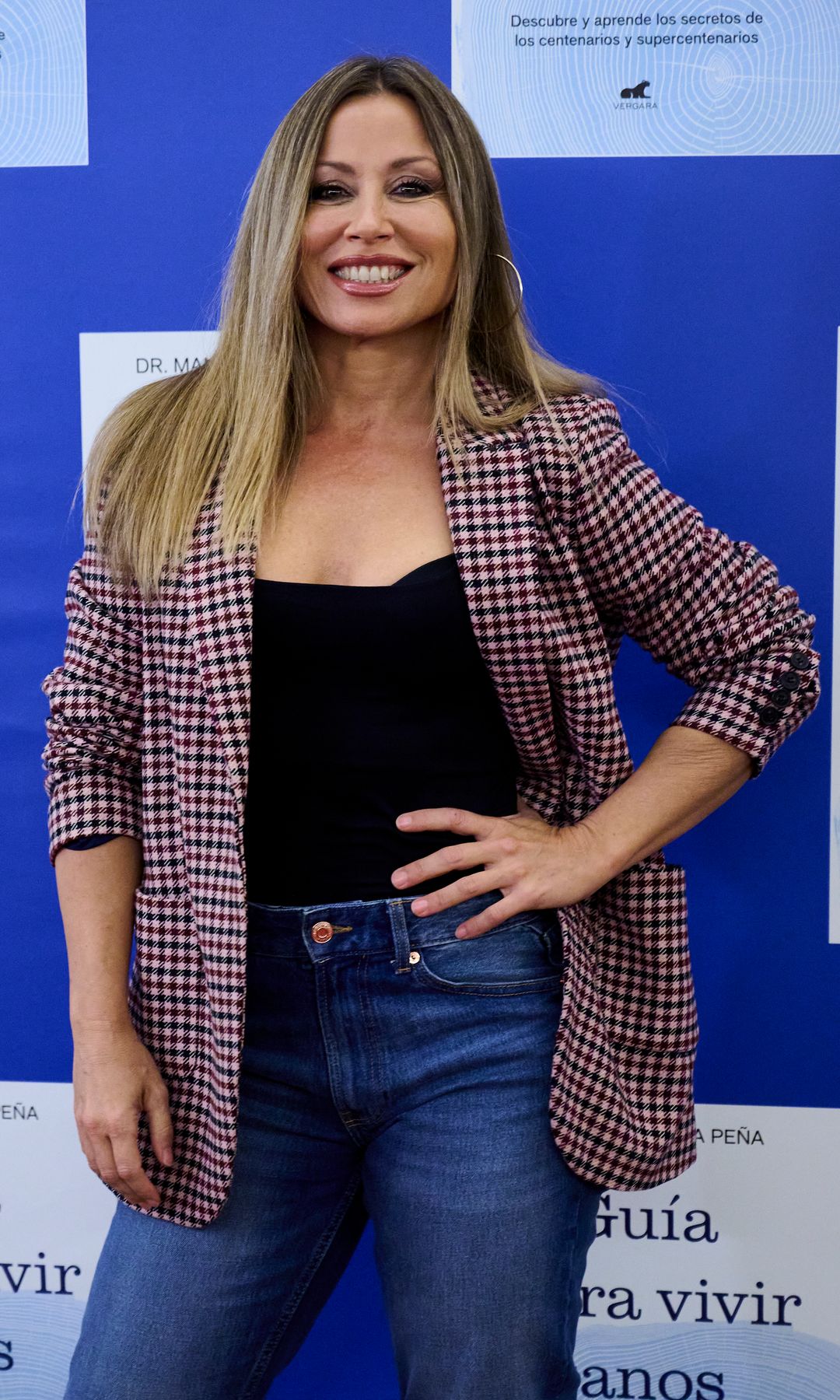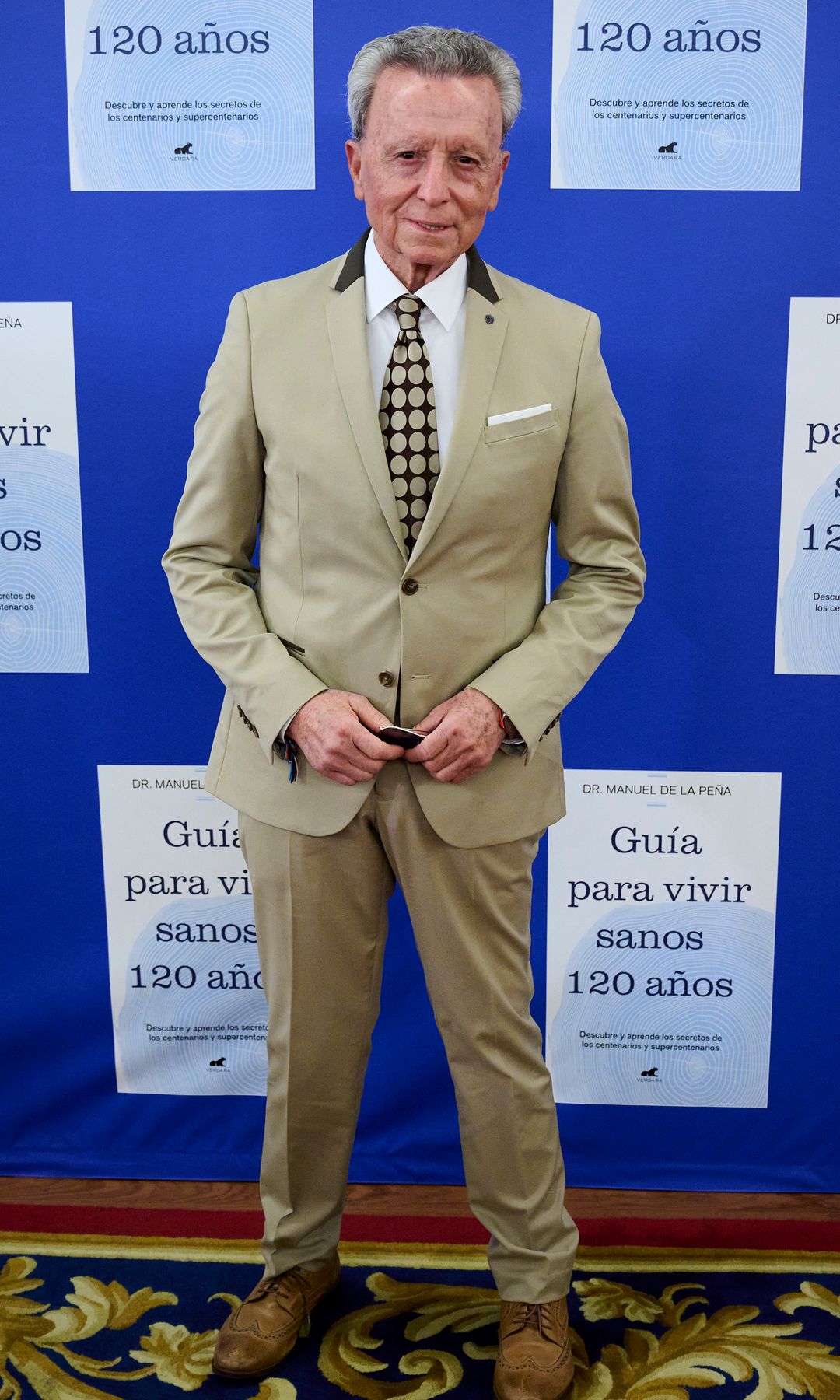World renowned medical expert, Manuel de la Peña Alonso-Araujo He is, in addition to being a professor of cardiology, a writer, academic, researcher, and doctor. cum laude in Medicine and president of the European Institute of Health and Social Welfare. Also an eminent expert in the study of longevity, which has led him to publish the Guide to living healthy 120 years (Ed. Vergara), an exhaustive work in which he discovers the secrets of centenarians and supercentenarians to live longer and better. A book that has been dedicated, among others, to Carlos FalcoMarquis of Griñón, and Angel Nietofriends of the doctor, who also counts among his friends and patients the King Juan Carlos and the journalist Jose Maria Garcia and has experienced this summer, with enormous regret, the sudden deaths of Carlos Goyanes and his daughter, Caritina, victims of two myocardial infarctions just nineteen days apart.
– ¿What led you to write this book?
-After an interview of mine published by the magazine Forbesthe publisher Penguin Random House called me and proposed that I write this book, which, in less than a month, is already in its second edition.
-How did you become interested in this topic?
-In 2010 I published the Treaty of the Heart and I included an entire chapter dedicated to “heart and longevity.” Its positive impact made me focus these last fourteen years on the study of centenarians and supercentenarians.
-Have you met and spoken with many of them?
-I have met and conducted more than one hundred clinical interviews with people who are among the oldest in the world, and their real stories have been the basis for writing this book.
-What has changed in your life after those experiences?
-Many things. I have gained serenity and spirituality and I have strengthened my faith. All thanks to all the people I interviewed, who live in a spiritual world.
-Has your research had a great impact on your lifestyle? What lesson have you received?
-Of course! It has helped me become more aware of the importance of healthy habits.
-What are the common myths about aging that you have debunked?
-To think that when you are going to turn 80 you have very little left to live and that you cannot have surgery for almost anything. I have been able to see how age is not an obstacle to surgery nor does it prevent cure. In fact, just a few days ago, Servando, who is 109 years old, had a pacemaker implanted. Dolores, at the same age, underwent surgery for a melanoma (tumor on the face) and was cured. And Engraciano, who is also 109 years old, overcame colon cancer when he was 90, a myocardial infarction at 80 and had his hip replaced when he was about to turn 100. I could describe to you, successively, many real stories that I reflect in my book
-What are the keys to living longer, according to what you have seen?
-Integrate habits and lifestyles into our daily routines, such as walking at least 20 minutes a day, eating organic products based on the Mediterranean diet and listening to 30 minutes of music a day. You have to learn to manage calm, since the great enemy is emotional stress. I describe all of this in my book, with tools that allow us to better face adversity.
-Tell me, what is the first thing I have to do to reach that age and not die trying?
-Overcome the resistance that our brain has to replace unhealthy habits with healthy ones. To adopt a positive change, the brain needs at least twenty-one days to assimilate and automate it, since it works with the law of least effort. That is why it is so important to have willpower and a lot of discipline to overcome resistance to change.
-Anyone can achieve it, it’s just a matter of knowing how?
-Indeed. Anyone who becomes fully aware can achieve it and it is easier when you move with people who make healthy decisions. It’s about having a good social connection with people who want to extend their lives free of disease. The main secret is knowledge, which is the best antidote to aging. You have to know why you lose vitality, why you age and, therefore, the guidelines to be in top shape to live with enthusiasm and health. In this book I reveal the legacy of wisdom of supercentenarians, whose secrets are the key to extending life free of disease.
-Is being able to reach them more a matter of genetics than of taking care of yourself or do both things influence?
-Genetics is 25% of our longevity. If we are carriers of genes associated with longevity, the genetic influence of our ancestors lengthens life. On the contrary, we can also inherit genes associated with diseases. For example, there are 50 genes associated with suffering from high blood pressure. That is why we increasingly give more importance to epigenetics, that is, the influence of our habits on the expression of our genes. If we adopt healthy habits and lifestyles we will positively influence them.
-What are the main ingredients of the longevity diet?
-Food products from the Spanish countryside must be promoted, since they are of high quality, but the main thing is the restriction of sugar and salt in the diet. You have to eat a diet based on many vegetables, legumes and fruits, with whole grains. Take a handful of nuts a day, all types of fish, especially blue fish (anchovies, sardines, salmon) and consume lean meats moderately. We must flee from ultra-processed foods and eat a diet based on organic products. Take 3-4 tablespoons of extra virgin olive oil daily and drink at least 8 glasses of water a day, that is, 2 liters to prevent dehydration. Calorie restriction and 16/8 intermittent fasting are also guidelines that help a lot.
-Does it require a lot of discipline?
-Of course. But discipline is what helps you grow internally. It requires a lot of effort to adopt it, but when you automate it you get many rewards.
-Do you apply these habits and customs in your daily life?
-It is a daily effort, but every day “I think more green”, which is the culture of my book: green diet and walks in nature, listening to music. When I do it, I gain a lot of vitality, energy and, above all, enthusiasm.
-With your hand on your heart, is it worth living so many years?
-Of course, but if you learn to take care of yourself. Age is a number, a mental barrier, but not real. Let me explain. The person who has lived the longest in the history of humanity has been the Frenchwoman Jeanne Calment, who lived to be 122 years old and rode a bicycle until she was 100. And until just two months ago the oldest person in the world was the Spanish María Branyas, who lived 117 years. He said he didn’t want toxic people around him and he ate one yogurt a day. No supercentenarian set out to live that many years, but everyone takes care of themselves to arrive in the best possible conditions.
-What would be the best diet to achieve healthy aging?
-The Mediterranean dietwith high consumption of extra virgin olive oil.
-We know how diet affects us and the importance of doing physical exercise, something that depends on us, but what about stress? How can it affect us?
-Emotional stress is the great scourge of this century. The body can last a while in a state of alarm, but if the situation becomes chronic, it can enter psychosomatic exhaustion with an infinite number of clinical manifestations that cause a lot of physical and psychological damage. In the book I make a great deal of techniques that allow you to effectively deal with stress: music, meditation and relaxation techniques are some of them.
-What habits are the most harmful for not reaching the age you propose in your book?
-Tobacco is nonsense. I haven’t come across any supercentenarians who smoke.
-He has dedicated the guide to his deceased friends such as the Marquis of Griñón, Angel Nieto. He was also a great friend of Carlos Goyanes. Did they follow his advice to the letter?
-Carlos Falcó is the person I enjoyed the most because he loved talking about longevity, he knew a lot. I met him before he launched his famous olive oil and we were united by his interest in knowing the beneficial effects that extra virgin olive oil has on cardiovascular health. I admired Ángel Nieto because he knew how to enjoy every second of his life. With him I learned to live in the present and I was very disciplined with what I told him. AND Carlos GoyanesHe was a beautiful person, it has been a great disappointment for everyone. The one I admire and love very much is José María García, who loved and cared for him as if he were his brother.
-Would you be shocked by the sudden death of Caritina, Carlos’s daughter?
-It has impacted everyone because He was an exceptional and very loved person.. She was very close to her father and was not able to withstand the extreme emotional crisis of the sudden death of her father and uncle. These types of situations cause what is called broken heart syndrome, similar to a myocardial infarction. But I’m sure she went straight to heaven.

